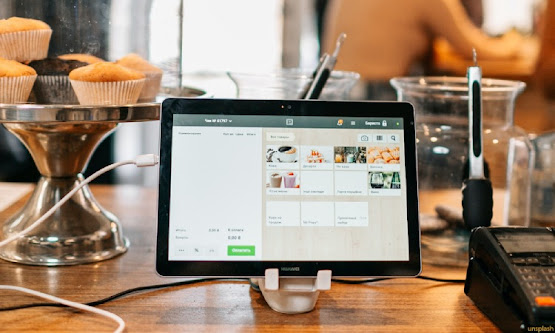Featured
- Get link
- X
- Other Apps
4 Ways To Use A Point of Sale System In Your Small Business
Small businesses need to use systems that fit more than one solution. POS systems do much more than just process sales transactions, so let's take a look at how your small business can make better use of the software. We'll start with a quick explanation of what a POS system is and what it replaces for startups considering a POS system.
What is a POS system?
Investopedia explains the POS system by the point at which the purchase takes place, i.e. the sale transaction. Before the point of sale, the store had a cash register and you could hand in cash to pay for your purchase. POS terminals now take care of the payment process. Mobile point-of-sale devices are ideal for bringing a purchase transaction to a shopper, rather than having to go to a point of sale terminal anywhere in a store or restaurant.
Benefits of a POS system
There are many things you can do with this technology. This is not only useful for transaction processing but also provides:
accurate reports
real-time data
help in inventory management
Automate many of your time-consuming manual tasks.
1. Availability and flexibility
Cloud systems store data on the Internet, allowing people to access it anywhere, anywhere.
With the right small business POS system like LightSpeed, you can access key data even when you're out of the office.
Most small business owners are on the move, so they are unlikely to stay in the store to track activity every minute of the day. This is where the POS terminal comes into play: With the help of the cloud system, business owners and managers can access and manage the business even if they are not physically present at the workplace. The main benefit is access to key information about business operations, including personnel, customers, sales numbers, and more.
2. Successful inventory management
Wouldn't you like to know right away how many items you have in your store? A timely sales process is based on knowing the status of your inventory. Real-time data allows you to replenish stocks before the food runs out.
Plus, as inventory builds up, you can update it in your sales and marketing strategy. Tracking inventory manually is challenging and time-consuming. With POS, you can manually scan an item or automatically enter quantities and create a smooth and accurate inventory process for your business.
You can not only track the number of products in the store, but also get useful data about things like:
Peak and off-peak hours
Best Selling and Worst Products
The rate of consumption of a certain product
A number of low stock alerts, etc.
3. Customer data for marketing & sales strategies
POS systems can likewise provide useful data about your customers. As with any software, you must enter valid data to obtain reliable data. With a POS system, you can paper all sorts of useful information about your customers to improve your marketing and sales strategies.
Some data you can include in your POS system storage.
Names
Phone numbers
emails
addresses
past purchases
partialities
With shopper data, your email marketing can be tailored and your email content unique. Plus, you can organize your PPC campaigns so that only the most relevant ads are shown to your customers based on their preferences and purchases. This is awesome for your marketing plans and strategies. For example, you canister personalize your mobile SMS messages or run an SMM (social media marketing) campaign to get your customers to take action by visiting your store or shopping with you online.
Think of the different incentives that will get people to come back to your store. Better yet, think of it as an opportunity to increase purchaser loyalty.
Once you distinguish who your customer is, what they've bought from him before, and where to find him, it’s much easier for you. You can recommend similar products, let them know about discounts on their favorite products, and encourage them to come back by submitting your latest deals.
4. Personnel management
The work of your employees can have a huge impact on your small business. These are the people who manage your money and communicate with consumers. A lot can go wrong, no matter how good your product is or how good your business plans were if you don't manage your employees well.
Rendering to Microsoft, 90% of Americans use customer service as a vigorous factor when deciding whether to use or stay away from a company. This makes your employees indispensable for monitoring and control.
This cannot be done without material data. POS systems go a long way in employee management. With the right system, you can pathway your employees' sales, hours worked and, in general, their progress in the workplace.
This data can be useful because it helps prevent theft and
shows how well your employees are performing. For example, based on how significant
an employee is selling and comparing to other members of your staff, you can
determine their promotions and their status in your company.
primewebreviews knowaboutanything newcomputerworld techstacy
- Get link
- X
- Other Apps
Popular Posts
Best recruiting tips to hire reacts developers in 2023
- Get link
- X
- Other Apps
World’s First Fully Automated Sensor Network for Measuring Urban Greenhouse Gas Emissions
- Get link
- X
- Other Apps

